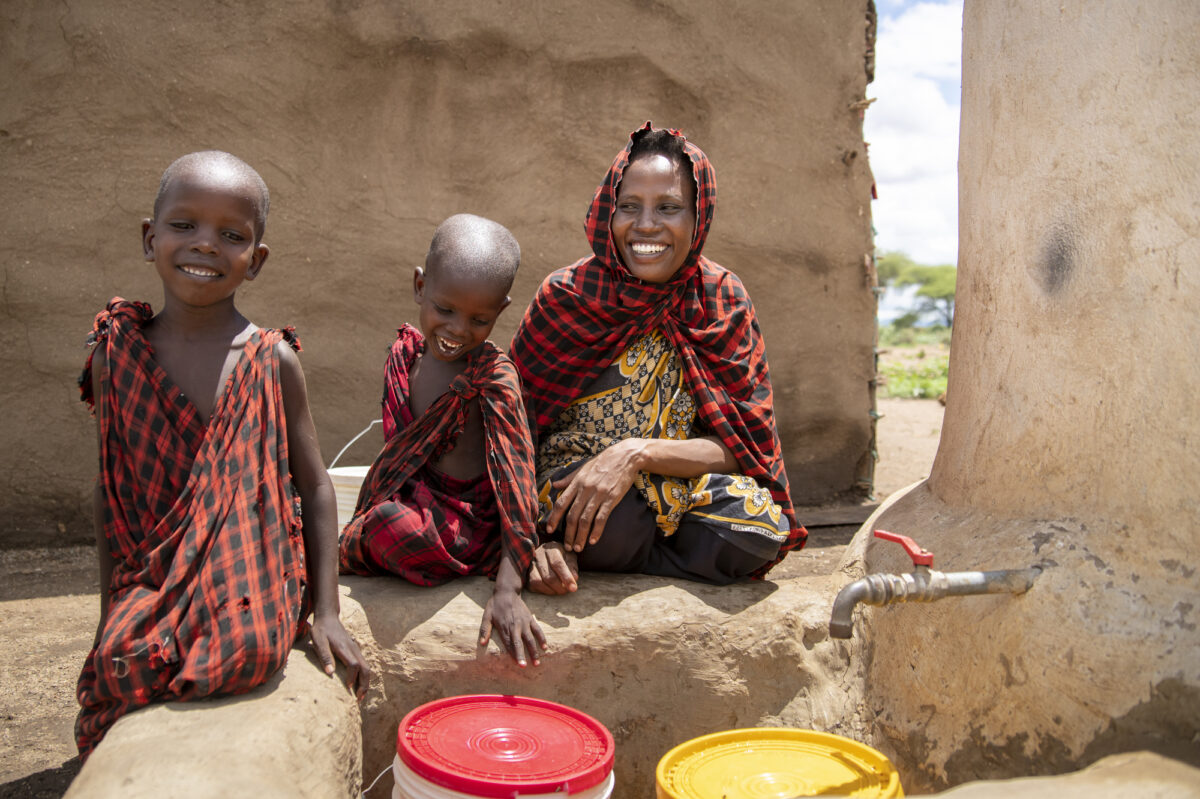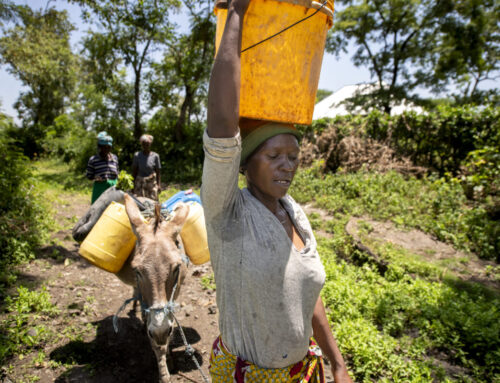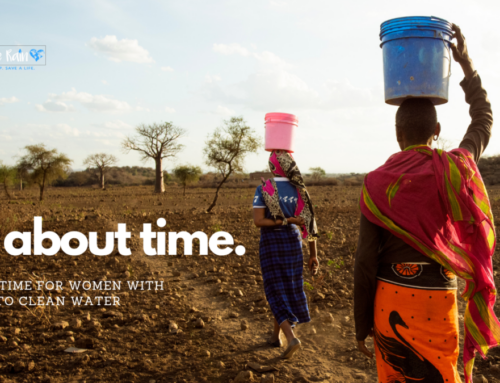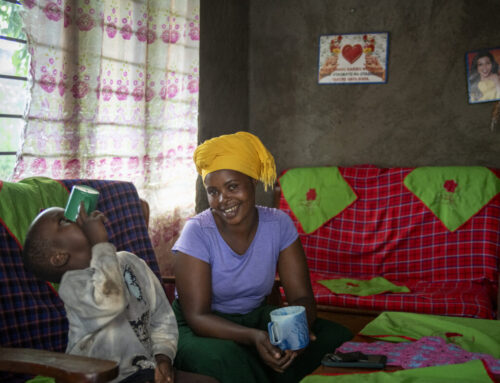In Tanzania, women are called ‘mama’ whether they are mothers or not. Having children is not the qualifier: it’s about the role they play. By the time a girl is 10, she will have looked after baby siblings for several years already. And by the time she reaches womanhood, she has, in a sense, been a mama for over a decade. Women are the glue that holds families and communities together – the unsung lynchpins of society. It’s why President Samia Suluhu Hassan is known simply as ‘Mama.’
We’re in Engatani where we’ve just installed a community greenhouse, and our rainwater harvesting system at the primary school is close to completion. There was heavy rain last night. The road is a chocolatey river. Consequently, we’ve abandoned the car and are walking to Messe’s, a recipient of one of our domestic rainwater harvesting tanks.
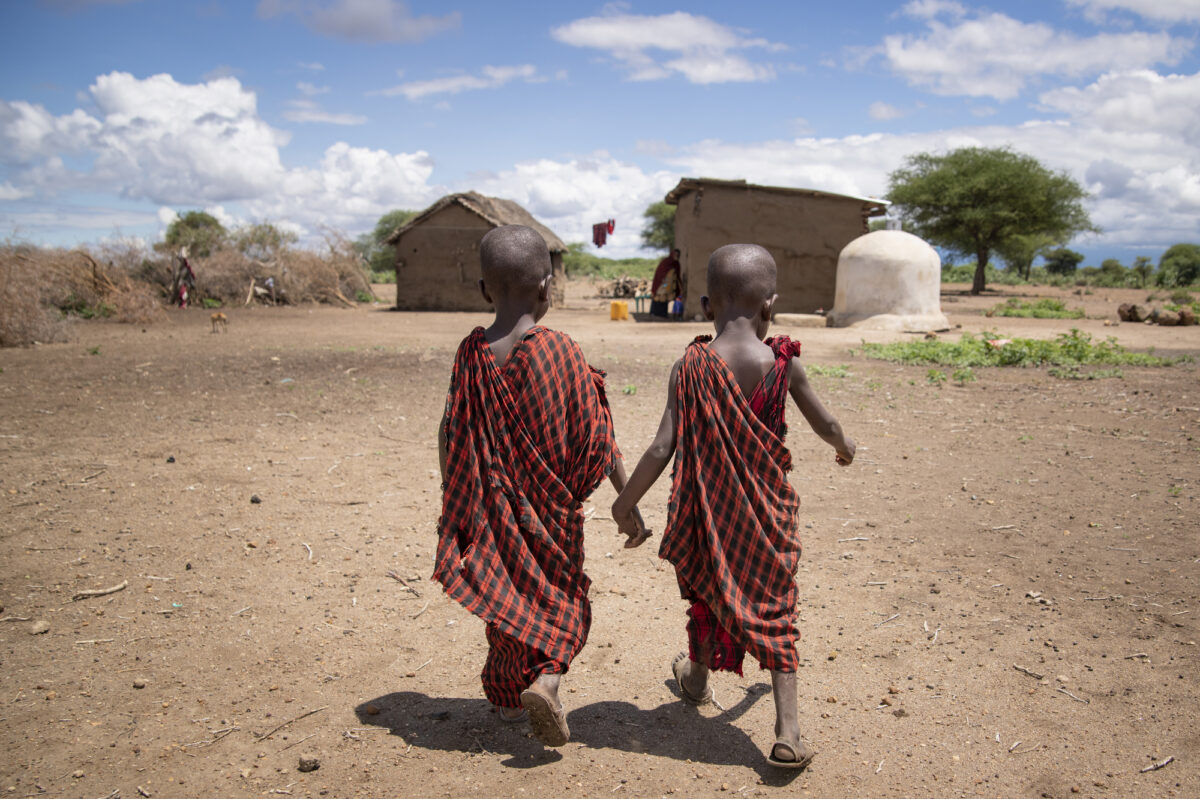
Identical boys peep out from behind her, smiling shyly. Twins are unusual, and Messe only realized she was having more than one child when the second arrived. She is Maasai; women are renowned for their toughness. Hospitals play no part in pregnancy or birth, and expectant mothers keep laboring until labor. Messe laughs, recounting tales of friends who delivered on the walk for water or while working in a field.
Here, motherhood is a testament to astounding grit and tenacity.
There’s shame associated with the sounds of pain during childbirth. You won’t hear the end of it if you make even a peep. Messe birthed twins on the dirt floor of her hut without crying out once.
Her smile is radiant. It takes a minute to realize why it’s so striking: her teeth are pure white, while everyone else’s are stained brown by naturally occurring fluoride in the water. Last night’s downpour has contributed to that smile. Rain in the tank is like money in the bank. Topped up, it will tide her family over for months to come.
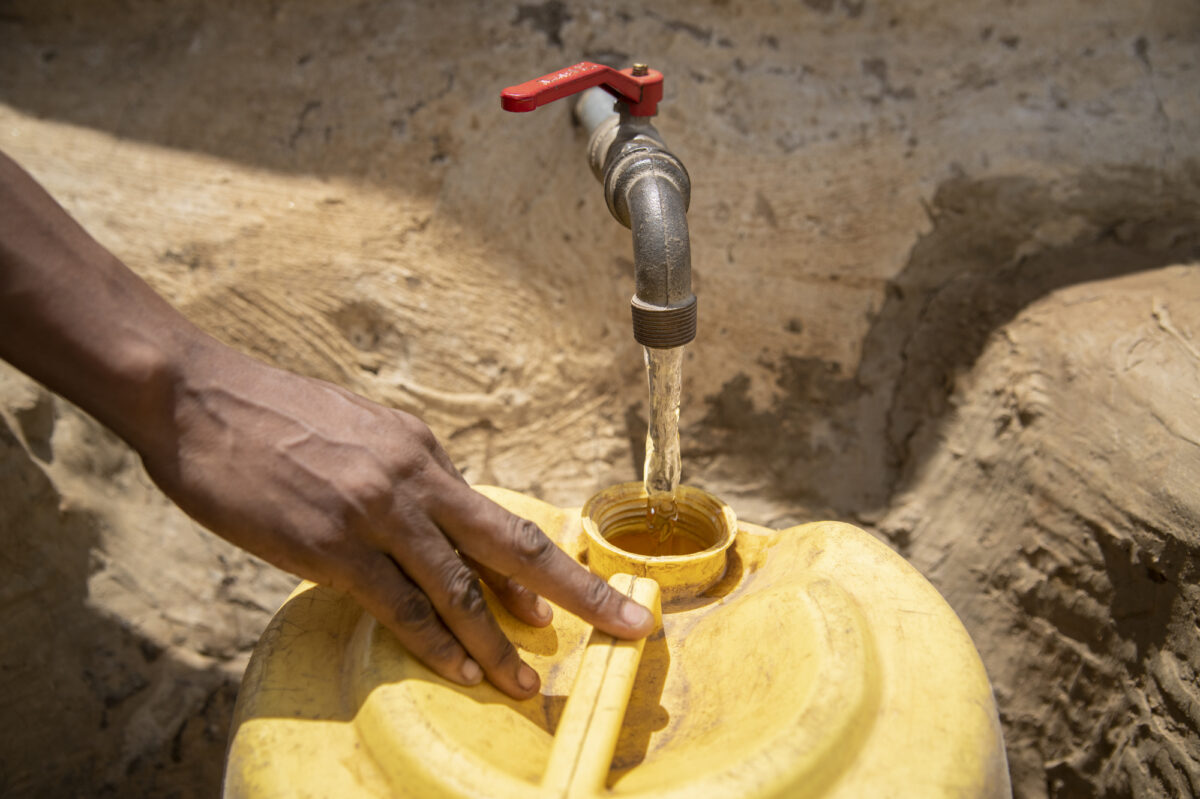
The saying ‘it takes a village’ must have come from here.
It is a polygamous culture, and families live in bomas of multiple households, with children roaming freely between them. Cooking, cleaning, crops, childcare, and, of course, water are all women’s work. With so much on their shoulders, they share the burden where they can. That goes for the good things, too. There is no division between ‘yours’ and ‘mine.’
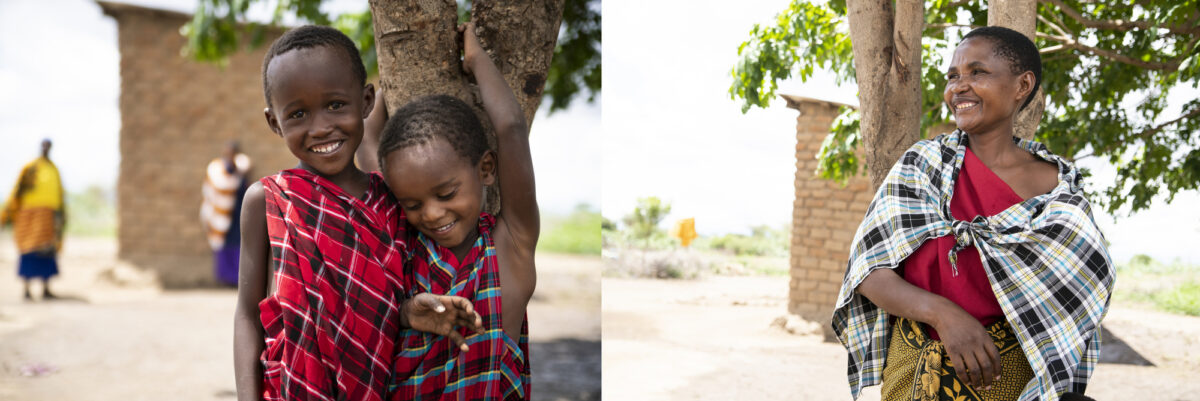
Though Eva doesn’t have a tank, her neighbor Margaret does. She ensures Eva and her children have clean, safe water to drink. Margaret’s children have grown up and left home, but her grandchildren live with her. She is their mother as much as her daughter is.
In Engatani, sharing is not second nature but true nature, and the ripples extend outward indefinitely. Giving and loving so freely and generously – not just occasionally, but as a way of being – is as innate as being a mama. Here, you get to be a mama many times over and in many different ways. It is a status that belongs not to biology but to anyone who loves like a mother.
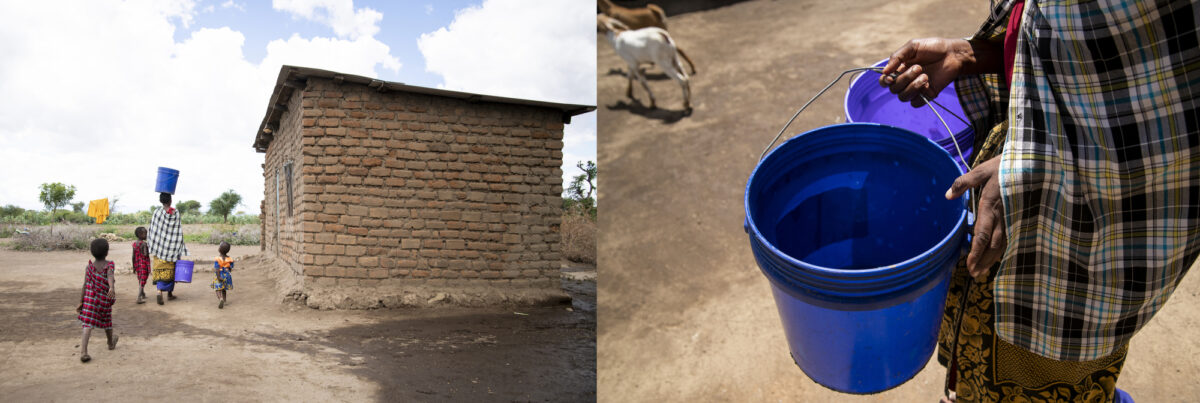
100% of public donations directly fund our projects
